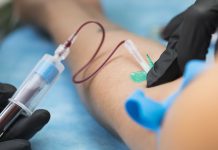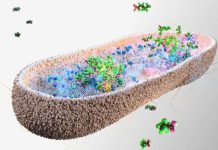Through a McMaster University led study, new evidence showing a correlation between psychological stress and Crohn’s disease flare-ups has been identified
In a study on mice, evidence to show that stress hormones suppressed what is known as the ‘innate immune system’ that protects the gut from ‘invasive Enterobacteriaceae’, a group of bacteria that has been linked to Crohn’s disease.
Crohn’s disease is an inflammatory bowel disease that causes inflammation, ulcers and scarring in the digestive system, resulting in debilitating pain leaving the body open to a number of other infections and health issues. Crohn’s symptoms can include, stomach cramps and pain, constipation, diarrhea, urgent need for the toilet, fever, lack of appetite and so much more.
With no current cure for Crohn’s disease, there is only treatment to control or reduce the disease, drugs and steroids are common options however surgery is sometimes required to control the symptoms.
The exact cause of Crohn’s is still unknown, however this recent research from McMaster University could prove invaluable in the future control and understanding of Crohn’s disease.
What is the importance of the Innate Immune System?
Without properly functioning immune cells, the body’s epithelial cellular wall will begin to break down and allow microbes to invade the gut and trigger Crohn’s symptom flare-ups. Epithelial cells rely on molecular signals from the body’s immune cells to keep our harmful microbes and repair the cell wall.
“Psychological stress impedes the body’s ability to fight off gut bacteria that may be implicated in Crohn’s disease” stated the senior author, professor and chair of biochemistry and biomedical sciences at McMaster, Brian Coombes.
“Psychological stress impedes the body’s ability to fight off gut bacteria that may be implicated in Crohn’s disease”
Coombes said that removing stress hormones in the mouse models restored proper function to immune cells and epithelial cells, blocking the invasion of harmful microbes. Although this study shows immense promise in in the future treatment and management of Crohn’s symptoms, Coombes emphasised that this research is still in the early pre-clinical stages of research and there is a long way to go.








